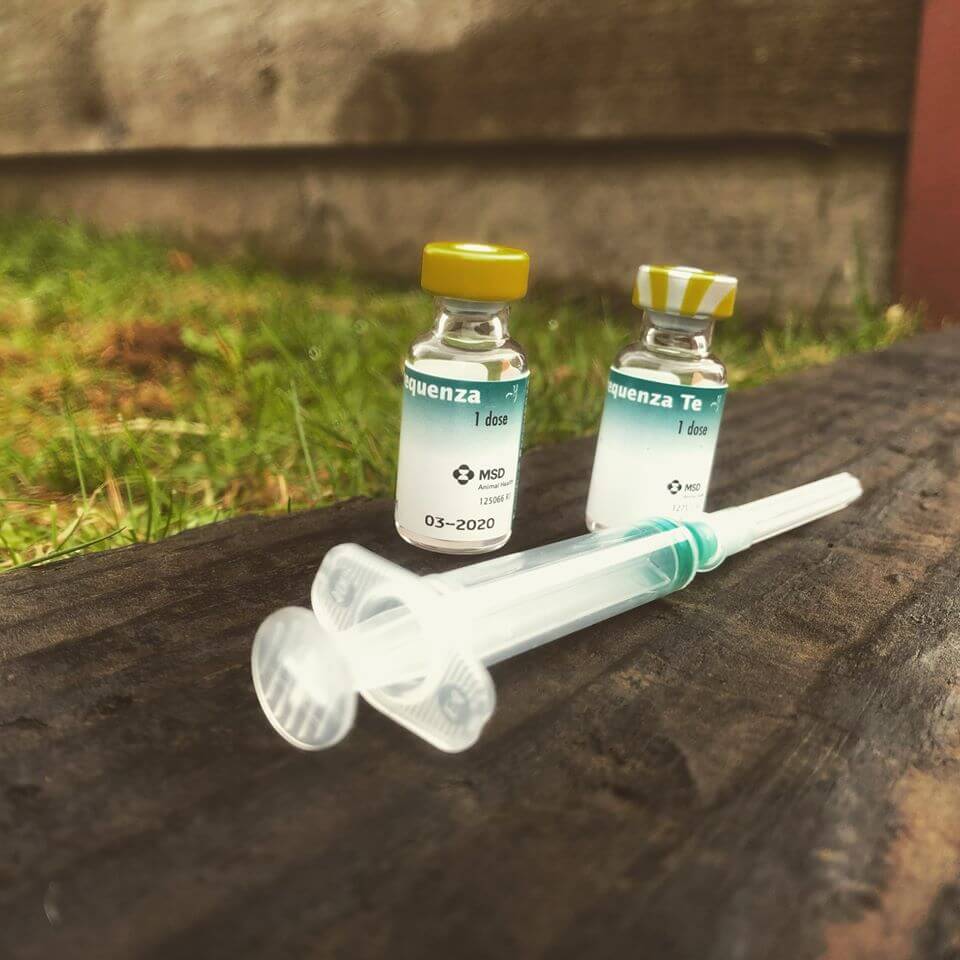Equine influenza is a cause of concern for both horse owners and equine vets. This highly contagious respiratory disease is a threat to horses worldwide, and horse owners must understand the ins and outs of equine influenza in order to keep their horses safe and healthy.
In this blog post, we will look at what equine influenza is, the symptoms of equine influenza and the importance of putting protective measures in place, including the equine influenza vaccine.
What is Equine Influenza and How Does it Spread?
Equine influenza is a highly contagious viral respiratory disease. It’s an airborne virus, spread by droplets being released into the air when a horse coughs. The droplets can be picked up by the wind and inhaled by other horses, and it’s thought that the virus can spread up to 5km this way.
The virus can also be spread via direct contact from horse to surface. Tools that are used to muck out an infected horse, for example, can become contaminated. If these tools are then used in another horse’s stable, the virus can spread.
Equine influenza has an incubation period of up to 5 days. This means that horses can become infected and not show signs until up to 5 days later, which allows the virus to spread rapidly during this time.
The Symptoms of Equine Influenza
There are a number of symptoms of equine influenza. The most common symptoms are:
- A high temperature (above 38.5 degrees). This is often the first sign and can occur before any other signs are shown
- A dry cough
- Clear and watery nasal discharge that turns thick and green a few days later
- Swollen and painful glands underneath the jaw
- Swollen or sore eyes
- Lethargy
- Loss of appetite
While some of the signs are very obvious, like the nasal discharge, others are more discreet. This is why it’s important for owners to monitor their horses for signs that they are just ‘not themselves’. A loss of appetite and lethargy should be noted and monitored.
If you notice any signs of equine influenza in your horse, or you believe your horse may have been in contact with an infected horse, you should immediately isolate your horse from others on the yard and call your vet.
Set up a dedicated area and warn others not to enter this area or touch the infected horse. You should also notify other yards in the area.
Equine Influenza Treatment.
There is no direct treatment for equine flu. Instead, supportive care and rest is advised. As it is a virus, antibiotics are not effective.
Treatment is often provided in the form of anti-inflammatory medication. You should also ensure the horse's stable is well-ventilated, and the horse is fed good quality forage. Some horses can benefit from being turned out in a small paddock once their temperature has returned to normal.
It can take several weeks for a horse to fully recover.
The Equine Influenza Vaccine
The equine influenza vaccine is the most effective way to prevent the spread of equine flu. Even if your horse doesn’t leave their yard, he can still catch the virus. Outbreaks within the area can spread for miles, and while the vaccine doesn’t guarantee full immunity, it can certainly decrease the risk of the horse becoming very ill. Horses that are vaccinated also tend to recover faster than those which are not.
The equine influenza vaccine covers most strains of equine flu and is compulsory for horses competing in most equestrian sports. Our vaccination course consists of 2 initial vaccinations followed by 6 monthly boosters. Depending on the individual risk to your horse after the first 3 injections annual boosters can be considered, but 6 monthly vaccination maintains the highest level of immunity. The first injection is administered, followed by a second between 21 and 60 days later, followed by a third injection between 120 and 180 days after the second injection.
Vaccinations can be given from six months old.
Routine Equine Healthcare at Avonvale Equine Vets
Avonvale Equine Vet Practice is an independent equine vet practice based in Upton, near Banbury. Our experienced and dedicated equine vets provide routine equine veterinary services, including vaccinations. Register your horse, pony, donkey or mule with us today.









